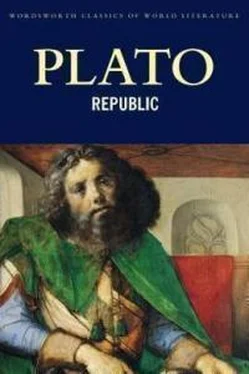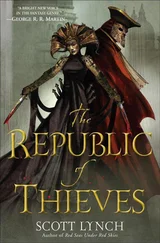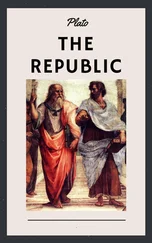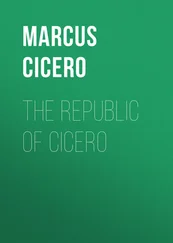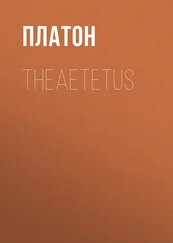Leaving the characters we may now analyse the contents of the Republic, and then proceed to consider (1) The general aspects of this Hellenic ideal of the State, (2) The modern lights in which the thoughts of Plato may be read.
The Republic opens with a truly Greek scene—a festival in honour of the goddess Bendis which is held in the Piraeus; to this is added the promise of an equestrian torch–race in the evening. The whole work is supposed to be recited by Socrates on the day after the festival to a small party, consisting of Critias, Timaeus, Hermocrates, and another; this we learn from the first words of the Timaeus.
When the rhetorical advantage of reciting the Dialogue has been gained, the attention is not distracted by any reference to the audience; nor is the reader further reminded of the extraordinary length of the narrative. Of the numerous company, three only take any serious part in the discussion; nor are we informed whether in the evening they went to the torch–race, or talked, as in the Symposium, through the night. The manner in which the conversation has arisen is described as follows:—Socrates and his companion Glaucon are about to leave the festival when they are detained by a message from Polemarchus, who speedily appears accompanied by Adeimantus, the brother of Glaucon, and with playful violence compels them to remain, promising them not only the torch–race, but the pleasure of conversation with the young, which to Socrates is a far greater attraction. They return to the house of Cephalus, Polemarchus' father, now in extreme old age, who is found sitting upon a cushioned seat crowned for a sacrifice. 'You should come to me oftener, Socrates, for I am too old to go to you; and at my time of life, having lost other pleasures, I care the more for conversation.' Socrates asks him what he thinks of age, to which the old man replies, that the sorrows and discontents of age are to be attributed to the tempers of men, and that age is a time of peace in which the tyranny of the passions is no longer felt. Yes, replies Socrates, but the world will say, Cephalus, that you are happy in old age because you are rich. 'And there is something in what they say, Socrates, but not so much as they imagine—as Themistocles replied to the Seriphian, "Neither you, if you had been an Athenian, nor I, if I had been a Seriphian, would ever have been famous," I might in like manner reply to you, Neither a good poor man can be happy in age, nor yet a bad rich man.' Socrates remarks that Cephalus appears not to care about riches, a quality which he ascribes to his having inherited, not acquired them, and would like to know what he considers to be the chief advantage of them. Cephalus answers that when you are old the belief in the world below grows upon you, and then to have done justice and never to have been compelled to do injustice through poverty, and never to have deceived anyone, are felt to be unspeakable blessings. Socrates, who is evidently preparing for an argument, next asks, What is the meaning of the word justice? To tell the truth and pay your debts? No more than this? Or must we admit exceptions? Ought I, for example, to put back into the hands of my friend, who has gone mad, the sword which I borrowed of him when he was in his right mind? 'There must be exceptions.' 'And yet,' says Polemarchus, 'the definition which has been given has the authority of Simonides.' Here Cephalus retires to look after the sacrifices, and bequeaths, as Socrates facetiously remarks, the possession of the argument to his heir, Polemarchus…
The description of old age is finished, and Plato, as his manner is, has touched the key–note of the whole work in asking for the definition of justice, first suggesting the question which Glaucon afterwards pursues respecting external goods, and preparing for the concluding mythus of the world below in the slight allusion of Cephalus. The portrait of the just man is a natural frontispiece or introduction to the long discourse which follows, and may perhaps imply that in all our perplexity about the nature of justice, there is no difficulty in discerning 'who is a just man.' The first explanation has been supported by a saying of Simonides; and now Socrates has a mind to show that the resolution of justice into two unconnected precepts, which have no common principle, fails to satisfy the demands of dialectic.
…He proceeds: What did Simonides mean by this saying of his? Did he mean that I was to give back arms to a madman? 'No, not in that case, not if the parties are friends, and evil would result. He meant that you were to do what was proper, good to friends and harm to enemies.' Every act does something to somebody; and following this analogy, Socrates asks, What is this due and proper thing which justice does, and to whom? He is answered that justice does good to friends and harm to enemies. But in what way good or harm? 'In making alliances with the one, and going to war with the other.' Then in time of peace what is the good of justice? The answer is that justice is of use in contracts, and contracts are money partnerships. Yes; but how in such partnerships is the just man of more use than any other man? 'When you want to have money safely kept and not used.' Then justice will be useful when money is useless. And there is another difficulty: justice, like the art of war or any other art, must be of opposites, good at attack as well as at defence, at stealing as well as at guarding. But then justice is a thief, though a hero notwithstanding, like Autolycus, the Homeric hero, who was 'excellent above all men in theft and perjury'—to such a pass have you and Homer and Simonides brought us; though I do not forget that the thieving must be for the good of friends and the harm of enemies. And still there arises another question: Are friends to be interpreted as real or seeming; enemies as real or seeming? And are our friends to be only the good, and our enemies to be the evil? The answer is, that we must do good to our seeming and real good friends, and evil to our seeming and real evil enemies—good to the good, evil to the evil. But ought we to render evil for evil at all, when to do so will only make men more evil? Can justice produce injustice any more than the art of horsemanship can make bad horsemen, or heat produce cold? The final conclusion is, that no sage or poet ever said that the just return evil for evil; this was a maxim of some rich and mighty man, Periander, Perdiccas, or Ismenias the Theban (about B.C. 398–381)…
Thus the first stage of aphoristic or unconscious morality is shown to be inadequate to the wants of the age; the authority of the poets is set aside, and through the winding mazes of dialectic we make an approach to the Christian precept of forgiveness of injuries. Similar words are applied by the Persian mystic poet to the Divine being when the questioning spirit is stirred within him:—'If because I do evil, Thou punishest me by evil, what is the difference between Thee and me?' In this both Plato and Kheyam rise above the level of many Christian (?) theologians. The first definition of justice easily passes into the second; for the simple words 'to speak the truth and pay your debts' is substituted the more abstract 'to do good to your friends and harm to your enemies.' Either of these explanations gives a sufficient rule of life for plain men, but they both fall short of the precision of philosophy. We may note in passing the antiquity of casuistry, which not only arises out of the conflict of established principles in particular cases, but also out of the effort to attain them, and is prior as well as posterior to our fundamental notions of morality. The 'interrogation' of moral ideas; the appeal to the authority of Homer; the conclusion that the maxim, 'Do good to your friends and harm to your enemies,' being erroneous, could not have been the word of any great man, are all of them very characteristic of the Platonic Socrates.
Читать дальше
